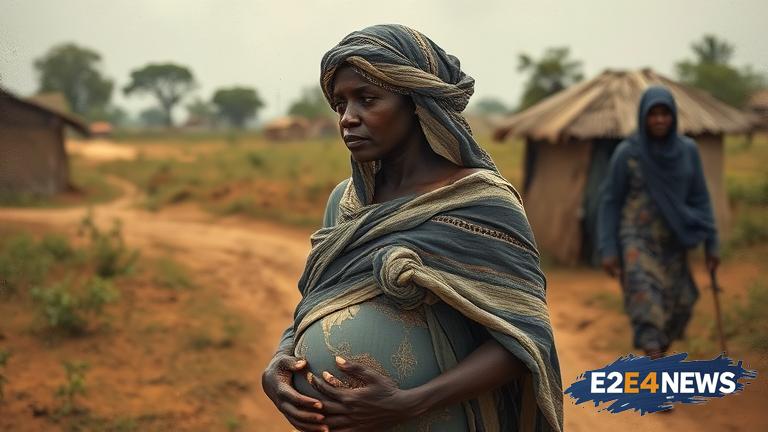The ongoing conflict in Nigeria’s north has turned pregnancy into a nightmare for many women, with the region’s healthcare system struggling to cope with the crisis. The conflict has led to a shortage of medical personnel, equipment, and supplies, making it difficult for women to access quality healthcare. As a result, maternal mortality rates have skyrocketed, with many women dying during childbirth or shortly after. The situation is further complicated by the fact that many women in the region are forced to give birth at home, without access to medical care or emergency services. This has led to a significant increase in complications during delivery, including hemorrhaging, eclampsia, and obstructed labor. The conflict has also disrupted the supply chain for essential medicines, including those needed to treat pregnancy-related complications. Furthermore, the region’s healthcare facilities are often understaffed and under-equipped, making it difficult for medical personnel to provide adequate care. The Nigerian government has been criticized for its response to the crisis, with many arguing that more needs to be done to address the root causes of the conflict and provide support to affected communities. In addition, the international community has been called upon to provide humanitarian aid and support to help alleviate the suffering of women and children in the region. Despite the challenges, there are still many organizations and individuals working tirelessly to provide healthcare services to women in need. These efforts include mobile health clinics, community-based healthcare programs, and initiatives to train and equip local healthcare workers. However, more needs to be done to address the scale and complexity of the crisis. The conflict in Nigeria’s north has also had a disproportionate impact on vulnerable populations, including internally displaced persons (IDPs) and refugees. Many of these individuals have been forced to flee their homes and are now living in makeshift camps, where access to healthcare and other essential services is limited. The psychological toll of the conflict on women should not be underestimated, with many experiencing trauma, anxiety, and depression. The conflict has also disrupted traditional social support networks, making it difficult for women to access emotional and practical support during pregnancy and childbirth. In response to the crisis, there is a growing recognition of the need for a more comprehensive and coordinated approach to addressing the healthcare needs of women in conflict-affected areas. This includes investing in healthcare infrastructure, training and equipping healthcare workers, and providing humanitarian aid and support to affected communities. The Nigerian government and international community must work together to address the root causes of the conflict and provide support to affected communities. This includes promoting peace and stability, addressing poverty and inequality, and providing access to education and economic opportunities. By working together, it is possible to reduce maternal mortality rates, improve healthcare outcomes, and ensure that women in Nigeria’s north have access to the care and support they need during pregnancy and childbirth. The situation is complex and multifaceted, requiring a sustained and coordinated response from governments, international organizations, and civil society. Ultimately, the goal must be to ensure that all women, regardless of their location or circumstances, have access to quality healthcare and the opportunity to give birth safely and with dignity.
